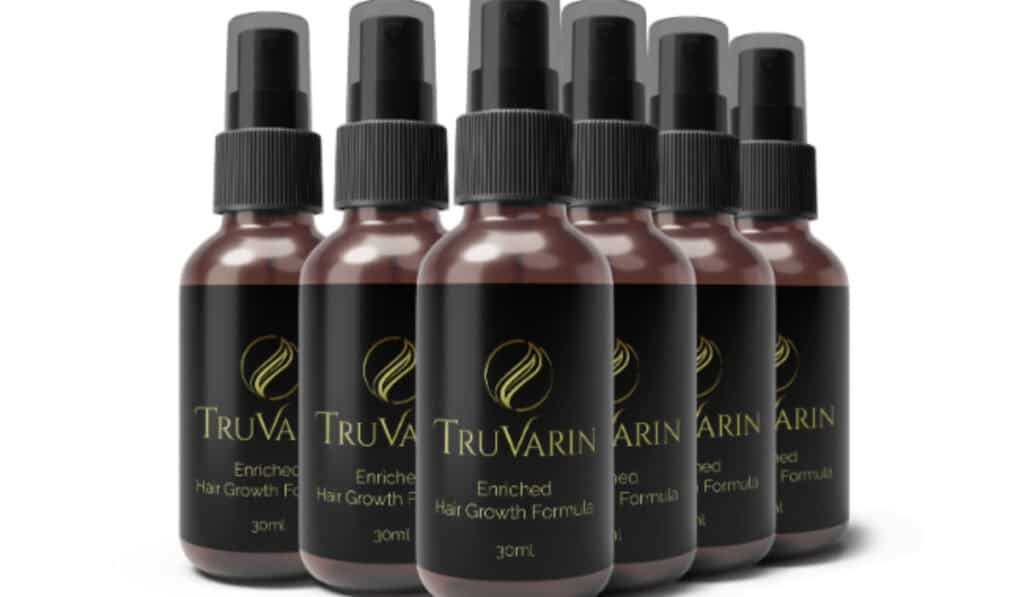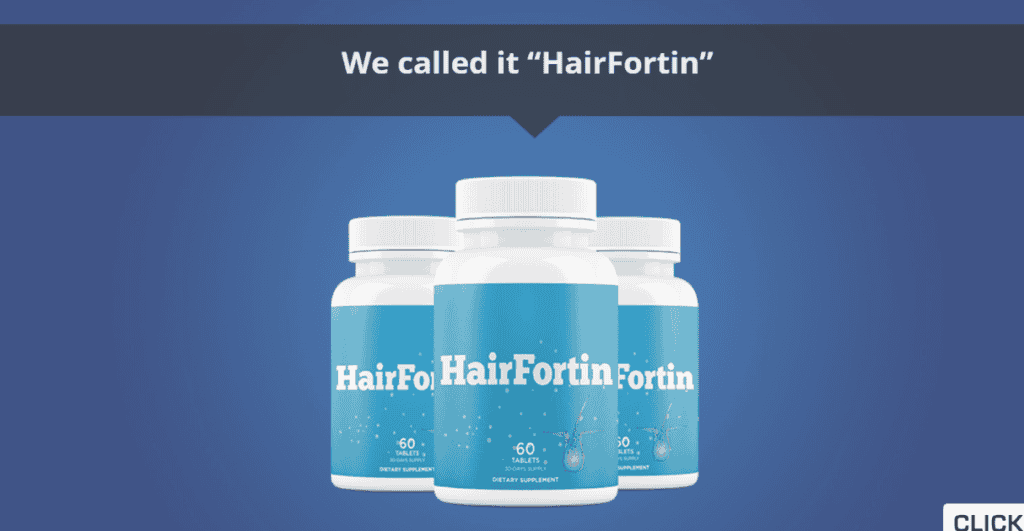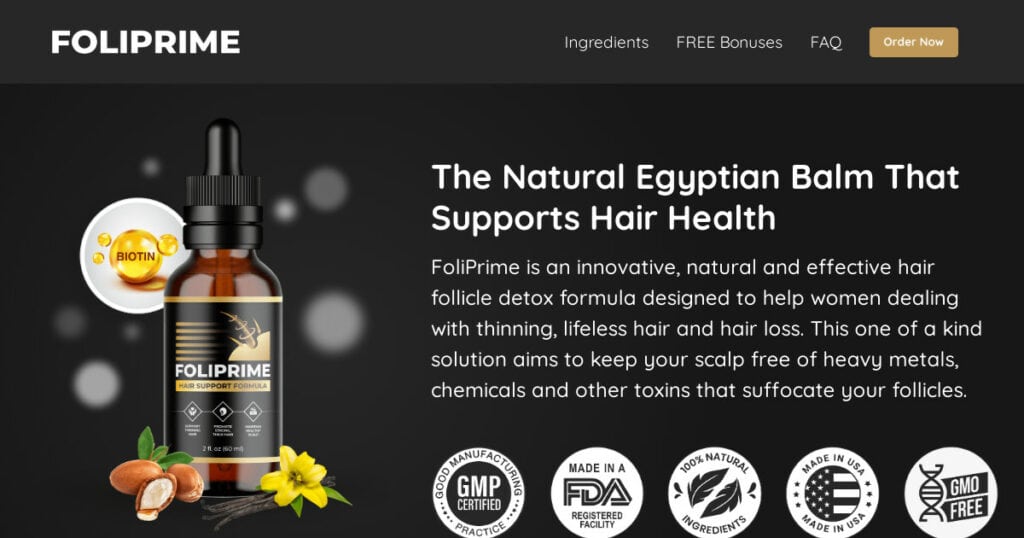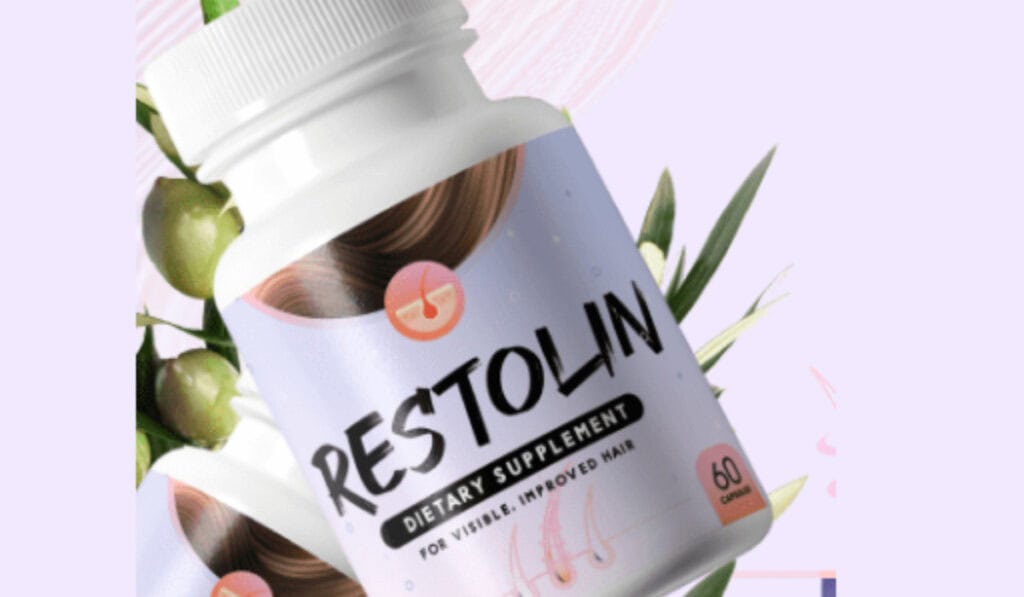Natural Ways to Balance Your Scalp Ecosystem and Enhance Hair Health
When you think about taking care of your hair, you might focus on the products you use or how often you wash it. But, have you ever considered the tiny world of bacteria and fungi living on your scalp? This is your scalp’s microbiome, and it plays a vital role in your hair’s health and appearance. An imbalance in this delicate ecosystem can lead to scalp issues like an itchy scalp or dandruff. By understanding and caring for your scalp’s microbiome, you can promote a healthier scalp environment.
Research has shown that a healthy scalp microbiome is key to preventing scalp skin problems. For example, beneficial bacteria like Staphylococcus epidermidis and Cutibacterium acnes, which are linked to scalp health, help keep harmful microorganisms at bay. This microbial balance is crucial in maintaining a healthy scalp and, by extension, healthy hair. Factors such as diet, stress, and the use of harsh haircare products can alter the scalp’s microbiome, emphasizing the importance of a holistic approach to scalp care.
To maintain an ideal scalp environment, it’s essential to keep your scalp clean but beware of overwashing, as it can strip away beneficial oils and bacteria, leading to dry, itchy scalp, or an unhealthy scalp. Instead, opt for gentle, scalp-friendly shampoos and conditioners that maintain the pH balance and support the scalp’s natural defense systems. Incorporating leafy greens into your diet and avoiding harsh chemicals can also support your scalp’s microbiome and your overall skin health.
Lastly, massaging your scalp with essential oils can nourish your scalp skin and promote circulation, which supports the health of your scalp microbes. This routine not only helps in maintaining a healthy scalp but also plays a role in ensuring the overall wellness of your hair. By adopting these natural ways to care for your scalp’s microbiome, you embark on a journey toward a balanced scalp ecosystem and enhanced hair health.
Unveiling the Secrets of Scalp Microbiome
Did you know that a balanced scalp microbiome is your first line of defense against common scalp issues like dandruff and seborrheic dermatitis? The scalp barrier, made up of skin cells and beneficial microbes, works tirelessly to protect your scalp from external aggressors. But when this balance is disturbed, problems can arise. Excessive sebum production, for example, can feed harmful bacteria, leading to an unhealthy scalp.
Maintaining a balanced microbiome is essential for a healthy scalp. Factors like the pH level of your scalp, sebum production, and the presence of beneficial bacteria all play a part in this delicate balance. A scalp with a healthy pH and balanced sebum production is less likely to experience issues. Remember, your scalp is an ecosystem, and like any ecosystem, it thrives on balance.
What Constitutes a Healthy Scalp Microbiome?
A healthy scalp microbiome is rich in beneficial bacteria that help fend off harmful microorganisms, preventing scalp issues before they start. A diverse community of microbes, including bacteria and fungi, contributes to a healthy scalp environment. These microorganisms work together to protect the scalp skin, maintain moisture, and support hair growth.
Your scalp’s microbiome’s health directly impacts your overall scalp and hair health. When the balance of beneficial and harmful bacteria is right, your scalp remains healthy, free from irritation, and conducive to hair growth. Ensuring your scalp’s microbiome is balanced is key to avoiding common scalp issues and promoting a healthier scalp environment.
The Impact of the Gut-Skin Axis on Scalp Health
Did you know that your gut health could be affecting your scalp? The gut-skin axis is a concept that links the health of your digestive system to the condition of your skin, including your scalp. An imbalance in your gut can lead to inflammation and scalp issues, such as atopic dermatitis. This connection emphasizes the importance of a balanced diet and gut health for maintaining a healthy scalp microbiome.
By nurturing your gut health through a diet rich in probiotics and prebiotics, you can support your scalp’s microbiome from the inside out. This holistic approach to health can reduce inflammation and help maintain the balance of scalp microbes, leading to a healthier scalp environment and potentially reducing scalp issues linked to gut imbalances.
Recognizing Signs of a Compromised Scalp Ecosystem
A healthy scalp microbiome is essential for maintaining the overall health and appearance of your hair. When this balance is off, your scalp may show signs of distress. Symptoms such as persistent itching, flakiness, and excessive oiliness can indicate a compromised scalp ecosystem. These signs suggest that the delicate balance of your scalp’s microbiome has been disturbed, potentially leading to more severe scalp issues.
By paying close attention to these early warning signs, you can take steps to restore your scalp’s microbiome balance. Adjusting your haircare routine, diet, and stress management strategies can help bring your scalp back to its optimal state. Remember, a healthy scalp microbiome not only supports a healthy scalp but also lays the foundation for strong, vibrant hair.
Factors Influencing the Scalp Biome
Several factors can influence the health of your scalp biome, from the haircare products you use to your daily habits. Understanding these factors is key to maintaining a balanced scalp ecosystem. For instance, the water temperature during hair washing, the frequency of hair treatments, and even the type of fabric in your hat can affect your scalp’s health. By being mindful of these influences, you can take proactive steps to support your scalp’s microbiome.
Environmental factors such as pollution, humidity, and UV exposure also play a significant role in the health of your scalp biome. These external conditions can stress your scalp, leading to imbalances in the microbiome. Protecting your scalp from these elements by wearing a hat, using scalp-friendly haircare products, and maintaining a healthy lifestyle can help preserve the balance of your scalp’s ecosystem.
The Consequences of Over-Washing and Under-Washing Hair
Washing your hair too often or not enough can have significant effects on your scalp’s health. Over-washing can strip away the natural oils and beneficial bacteria that protect your scalp, leading to dryness, irritation, and an increase in harmful microorganisms. On the other hand, under-washing can result in excessive sebum buildup, making your scalp a breeding ground for bacteria and fungi. Finding a washing routine that maintains your scalp’s natural balance is crucial.
To avoid these issues, aim for a hair washing frequency that keeps your scalp clean without disrupting its natural microbiome. This may vary depending on your hair type, lifestyle, and the products you use. Listening to your scalp and adjusting your routine as needed can help you maintain a healthy scalp environment.
Harmful Effects of Harsh Haircare Products
Harsh haircare products containing sulfates, parabens, and fragrances can disrupt your scalp’s microbiome. These ingredients can strip away natural oils and beneficial bacteria, leaving your scalp vulnerable to dryness, irritation, and an imbalance in its microbial community. This disruption can lead to scalp issues such as itchiness, dandruff, and even hair loss.
Choosing gentle, natural haircare products can help protect your scalp’s microbiome and support its health. Look for products formulated for sensitive scalps, free from harsh chemicals, and enriched with natural ingredients. By treating your scalp with care, you can maintain its natural balance and promote healthier, stronger hair.
The Role of Diet, Stress, and Hormonal Changes
Your diet, stress levels, and hormonal changes can all impact your scalp’s health. A diet lacking in essential nutrients can weaken your scalp’s defense mechanisms, making it more susceptible to imbalances. Similarly, high stress levels can disrupt hormonal balance, affecting sebum production and leading to scalp issues. Hormonal fluctuations, particularly during puberty, pregnancy, and menopause, can also significantly alter your scalp’s ecosystem.
To support a healthy scalp, focus on a balanced diet rich in vitamins, minerals, and antioxidants. Managing stress through meditation, exercise, or hobbies can also help maintain hormonal balance and support your scalp’s health. Being aware of how these factors interact can guide you in taking steps to ensure the well-being of your scalp and hair.
Pathways to a Harmonious Scalp Microbiome
Finding the right balance for your scalp involves understanding the delicate dance between dandruff, seborrheic dermatitis, and the natural ecosystem of your scalp, including the scalp barrier and sebum production. It’s not just about removing the excess sebum but about maintaining a balanced microbiome and a healthy scalp pH. When the scalp’s environment is harmonious, excessive sebum doesn’t become a problem, and conditions like dandruff are kept at bay. This balance is key to preventing build-up and ensuring your scalp remains a build-up blocker.
Selecting Scalp-Friendly Haircare Products
Choosing haircare products that support a healthy scalp ecosystem is crucial. Look for products that address dandruff and seborrheic dermatitis without compromising the scalp barrier or sebum production. A balanced microbiome and scalp pH should be your goal, with a focus on preserving microbial diversity and minimizing effects on the scalp. Opt for products that are a source of antioxidants and rich in amino acids, as these will promote a healthy scalp and help soothe an irritated scalp. By prioritizing these elements, you can nurture your scalp and hair to their optimum health.
Daily Shampoo and Body Wash for Sensitive Scalp
For those with sensitive scalps, selecting a gentle daily shampoo and body wash is essential. Products designed with the skin barrier and scalp pH in mind help maintain microbial diversity, crucial for a healthy scalp. These products should not strip the scalp of its natural oils but instead manage the effects on the scalp gently. The inclusion of antioxidants and amino acids supports the scalp’s health, further promoting resilience against irritation and dryness.
Additionally, when choosing such products, it’s important to consider those free from harsh chemicals and fragrances that could disrupt the scalp’s natural pH and irritate sensitive skin. A gentle formula enriches the hair and scalp with necessary hydration and nutrients, ensuring the scalp’s environment remains balanced and healthy.
Moisturizing Eczema Cream for Scalp Nourishment
For individuals experiencing dryness and sensitivity due to conditions like eczema, a moisturizing eczema cream specifically formulated for the scalp can provide much-needed relief. Such creams are designed to deeply nourish the scalp, restoring hydration and soothing irritation. The goal is to create a protective barrier that helps retain moisture, offering a layer of defense against external irritants and aiding in the healing process of the scalp.
Regular application of a moisturizing eczema cream can significantly improve scalp health, reducing flakiness and discomfort. By selecting a cream rich in emollients and free from harsh chemicals, you can ensure that your scalp receives the gentle care it needs, promoting a healthier, more comfortable scalp environment.
Medicated Shampoo for Targeted Scalp Issues
When dealing with specific scalp conditions such as dandruff or seborrheic dermatitis, a medicated shampoo can be a powerful ally. These specialized shampoos are formulated to address the root causes of scalp issues, including the disruption of the skin barrier and imbalances in scalp pH. By focusing on these underlying factors, medicated shampoos can help restore microbial diversity and reduce inflammation, leading to a healthier scalp environment.
It’s important to select a medicated shampoo that contains beneficial ingredients such as amino acids, which support the scalp’s natural defenses and aid in the healing process. With regular use, these shampoos can effectively manage symptoms and promote long-term scalp health, ensuring that your hair’s foundation remains strong and balanced.
The Benefits of Regular and Appropriate Hair Washing
Regular and appropriate hair washing plays a pivotal role in maintaining a healthy scalp pH and a healthy microbial balance. This routine helps to prevent scalp irritation by removing buildup and excess oils that can clog pores and lead to scalp issues. By washing your hair at intervals that suit your hair type and scalp condition, you support the natural renewal process of the scalp skin, ensuring that it remains healthy and balanced.
It’s crucial to find a balance in your washing routine to avoid stripping the scalp of its natural oils, which can lead to dryness and irritation. Understanding your hair’s needs and adjusting your washing frequency accordingly can help maintain the health of your scalp and hair, promoting a vibrant, healthy head of hair.
Natural Remedies vs. Professional Treatments
Natural remedies, such as coconut oil, offer a gentle yet effective option for nurturing scalp health. Coconut oil, known for its moisturizing properties, can help soothe dryness and irritation, promoting a healthy scalp environment. These natural solutions support the scalp’s inherent balance, offering a holistic approach to scalp care that aligns with the body’s natural processes.
While natural remedies can be incredibly beneficial for maintaining scalp health, there are instances where professional treatments may be necessary. If you’re facing persistent scalp issues or conditions that don’t improve with home care, seeking advice from a dermatologist or trichologist can provide targeted solutions and treatments specifically designed for your scalp’s needs.
The Importance of a Balanced Diet and Stress Management
A balanced diet and effective stress management are foundational to maintaining a healthy scalp and vibrant hair. Nutrients from a well-rounded diet support the body’s overall health, including that of the scalp, by providing the vitamins and minerals necessary for hair growth and scalp vitality. Similarly, managing stress through relaxation techniques or regular exercise can reduce the impact of stress-related hormones on hair health, promoting a healthier scalp environment.
Incorporating a variety of nutrient-rich foods and dedicating time to stress-reducing activities can significantly influence the health of your scalp and hair. By nurturing your body from the inside out, you create optimal conditions for a balanced scalp microbiome and robust hair growth, highlighting the interconnectedness of overall wellness and scalp health.
The Journey to Scalp Microbiome Restoration
Restoring the scalp microbiome to its optimal state involves addressing factors such as scalp barrier integrity, sebum production, scalp pH, and excess sebum. By focusing on these key areas, you can encourage a balanced microbial environment that supports hair health. This involves using gentle haircare products that respect the scalp’s natural balance, avoiding harsh chemicals that can strip natural oils and disrupt the microbiome.
Maintaining a healthy scalp environment is crucial for preventing issues such as dandruff and ensuring that your hair has a strong, healthy foundation. Through careful selection of haircare products and attention to scalp health, you can support the natural ecosystem of your scalp, promoting a balanced, healthy microbiome that nurtures hair growth and vitality.
Dietary Adjustments for Scalp and Hair Health
Adjusting your diet to support scalp and hair health involves recognizing the delicate balance between nutrition and the health of your hair. Avoiding excessive heat styling and protecting your gut microbiome are integral steps. A diet rich in antioxidants, vitamins, and minerals can fortify hair follicles and support the natural defenses of your scalp, promoting resilient hair growth and a balanced scalp ecosystem.
Incorporating foods high in omega-3 fatty acids, vitamins A, C, D, and E, and minerals such as zinc and iron can profoundly impact the health of your scalp and hair. These nutrients support sebum production, enhance the scalp barrier, and encourage a healthy microbial diversity, laying the groundwork for a vibrant, healthy head of hair.
Topical Solutions to Rebalance the Scalp Microbiome
Applying topical solutions can effectively rebalance the scalp microbiome, addressing issues like excess sebum while preserving the natural pH and microbiome of the scalp. Choosing the right products is crucial; opt for those that are designed to support the scalp’s natural environment without disrupting its delicate balance.
Regular use of these solutions can lead to a noticeable improvement in scalp health, reducing irritation and promoting a healthy environment for hair growth. By focusing on products that complement the natural processes of your scalp, you can achieve a balanced microbiome, laying the foundation for strong, healthy hair.
When to Seek Professional Advice for Scalp Health
Knowing when to seek professional advice for scalp health is crucial for maintaining a balanced scalp ecosystem. If you notice persistent itching, redness, or flaking that doesn’t improve with over-the-counter products, it might be time to consult a dermatologist. These symptoms could indicate underlying conditions such as dermatitis, psoriasis, or fungal infections that require specialized treatment.
Additionally, experiencing severe hair loss or scalp pain are signs that something more serious might be affecting your scalp’s health. Professionals can offer targeted treatments and advice tailored to your specific needs, ensuring that your scalp microbiome remains in harmony and supports healthy hair growth.
Sustaining a Healthy Scalp Ecosystem
Maintaining a healthy scalp ecosystem involves consistent care and understanding your scalp’s needs. Regular cleansing with gentle products, staying hydrated, and eating a balanced diet rich in nutrients can support scalp health. Additionally, minimizing the use of styling tools that apply excessive heat helps preserve your scalp’s natural moisture and maintain its microbiome balance.
Routine Practices for Maintaining Scalp Microbiome Health
Routine practices for maintaining scalp microbiome health include gentle cleansing to remove dirt and excess sebum without stripping the scalp of its natural oils. It’s important to choose shampoos and conditioners formulated for your specific scalp type, whether it be oily, dry, or sensitive. This ensures that the natural flora of your scalp is nurtured and not disrupted by harsh chemicals.
Including a scalp massage in your routine can also promote circulation and support a healthy scalp environment. This, combined with limiting the frequency of hair washes to prevent drying out the scalp, can help maintain the delicate balance of your scalp’s microbiome. Remember, a happy scalp leads to healthy hair!
Innovative Haircare Products That Support the Scalp Biome
Innovative haircare products are being developed to specifically support the scalp biome, focusing on gentle ingredients that nourish the scalp without disrupting its natural balance. Products like prebiotic shampoos and serums enriched with natural oils and plant extracts can help maintain the health of your scalp’s microbiome, leading to stronger, healthier hair.
Scalp Microbiome Exfoliating Mask to Prevent Build-Up
An exfoliating mask designed for the scalp can help prevent the build-up of dead skin cells and excess sebum, which are common culprits behind dandruff and scalp irritation. By gently removing these impurities, the scalp’s natural renewal process is supported, promoting a balanced and healthy microbiome. Look for masks containing natural exfoliants like fruit enzymes or jojoba beads for gentle yet effective exfoliation.
Regular use of a scalp microbiome exfoliating mask can also enhance the effectiveness of other scalp care products by ensuring better absorption. A clean, balanced scalp is the foundation of healthy hair growth, making an exfoliating mask an essential part of your hair care routine.
Scalp Microbiome Shampoo for Root Purification
A scalp microbiome shampoo designed for root purification can help maintain the integrity of the skin barrier while cleansing. Ingredients like amino acids and gentle surfactants work together to remove impurities without stripping the scalp of its natural oils. This type of shampoo supports the scalp’s flora, promoting a healthy environment for hair growth.
Furthermore, such shampoos often contain hydrating and soothing components that help to reduce scalp irritation and maintain moisture balance. By choosing a scalp microbiome shampoo for root purification, you’re taking a step towards a healthier scalp ecosystem, which is essential for strong and vibrant hair.
Scalp Microbiome Essence for Stress Relief
A scalp microbiome essence designed for stress relief can help manage excess sebum production, a common stress-related scalp issue. Ingredients known to soothe and calm the scalp, such as plant extracts and essential oils, work to promote a healthy scalp environment. This type of product not only addresses physical concerns but also the emotional stress that can impact scalp health.
Using a scalp microbiome essence regularly can assist in rebalancing the scalp’s natural oils and reducing inflammation. It’s a soothing step in your hair care routine that can make a significant difference in maintaining scalp wellness and, by extension, promoting healthy hair growth.
Empowering Your Scalp Health Knowledge
Empowering yourself with knowledge about the scalp microbiome is the first step towards achieving and maintaining optimal scalp health. Understanding how factors like diet, stress, and product choice affect your scalp can help you make informed decisions for healthier hair.
Frequently Asked Questions About the Scalp Microbiome
Common questions about the scalp microbiome often revolve around how to manage excess sebum production, the role of diet in scalp health, and the best practices for maintaining a balanced scalp environment. These inquiries highlight the growing interest in holistic approaches to hair care and the importance of a healthy scalp ecosystem.
How Does the Microbiome Affect Hair Growth?
The scalp microbiome plays a vital role in healthy hair growth by maintaining the skin barrier and preventing scalp irritation. A balanced microbiome supports the scalp’s natural defenses against environmental stressors and pathogenic bacteria, ensuring that hair follicles are nurtured in a healthy environment. This balance is crucial for promoting strong and resilient hair growth.
Disruptions in the scalp’s microbiome can lead to issues like dandruff, dryness, and increased sensitivity, which can inhibit hair growth. Therefore, maintaining a healthy scalp microbiome is essential for fostering the conditions necessary for optimal hair growth.
How Can I Reset My Scalp Microbiome?
Resetting your scalp microbiome involves adopting a gentle hair care routine that supports the natural balance of your scalp. This includes using mild, pH-balanced shampoos, reducing the use of harsh styling products and tools, and incorporating scalp treatments that nourish and restore. It’s also beneficial to avoid over-washing your hair to preserve natural oils that support the microbiome.
Incorporating prebiotics and probiotics into your diet can also support the health of your scalp from the inside out. These dietary changes, combined with mindful hair care practices, can help reset and maintain a healthy scalp microbiome, laying the foundation for strong and healthy hair growth.
What Causes Poor Scalp Health?
Poor scalp health can result from a variety of factors, including harsh haircare products, over-washing, under-washing, and environmental stressors. These practices can strip the scalp of its natural oils, leading to an imbalance in the scalp microbiome. This imbalance makes the scalp susceptible to irritation, dryness, and infections.
Diet and stress also play a significant role in scalp health. A diet lacking in essential nutrients and high levels of stress can weaken the scalp’s natural barrier, leading to increased sensitivity and other scalp issues. Understanding these contributing factors is key to preventing poor scalp health and supporting a balanced scalp ecosystem.
Nurturing Your Scalp Microbiome: A Conclusion
The Integral Role of Scalp Care in Overall Wellness
Understanding the delicate balance of your scalp ecosystem is essential for maintaining overall health. Just as dead skin cells and your skin barrier play crucial roles in protecting you from external aggressors, so does your scalp in supporting hair growth and preventing scalp irritation. A healthy balance in your scalp’s microbiome can enhance immune responses, reducing the risk of scalp dysbiosis, which leads to irritation and flakiness. By nurturing this balance, you not only support your scalp health but also contribute to your body’s overall wellness.
It’s important to recognize that the health of your scalp is interconnected with the rest of your body. Factors like stress, diet, and hormonal changes can all impact the microbiome balance, leading to scalp issues. Adopting a holistic approach to scalp care, focusing on both internal and external factors, can help maintain a harmonious environment for your scalp microbiome. This approach ensures that your scalp and, consequently, your hair, remains healthy, strong, and vibrant.
Embracing a Holistic Approach to Scalp and Hair Health
Incorporating a holistic approach to your scalp and hair health involves more than just selecting the right haircare products. It includes understanding how lifestyle choices, like diet and stress management, affect the delicate balance of your scalp and skin. Avoiding excessive heat from heat styling tools and harsh chemicals that can disrupt the microbiome is crucial. Remember, maintaining a healthy microbiome supports the optimal pH and nurtures the natural microbial community, which in turn, protects against issues like dandruff and helps retain scalp moisture.
Beyond just haircare routines, embracing a holistic approach means considering how every aspect of your life impacts the health of your scalp and hair. From ensuring you’re not stripping your scalp of its natural oils with over-washing to using protective barriers against environmental stressors, it’s all about balance. By prioritizing the health of your scalp and skin, you’re taking a critical step towards not only preventing microbiome imbalances but also promoting the overall well-being of the human body. This strategy ensures your hair and scalp remain resilient against the challenges they face daily.





